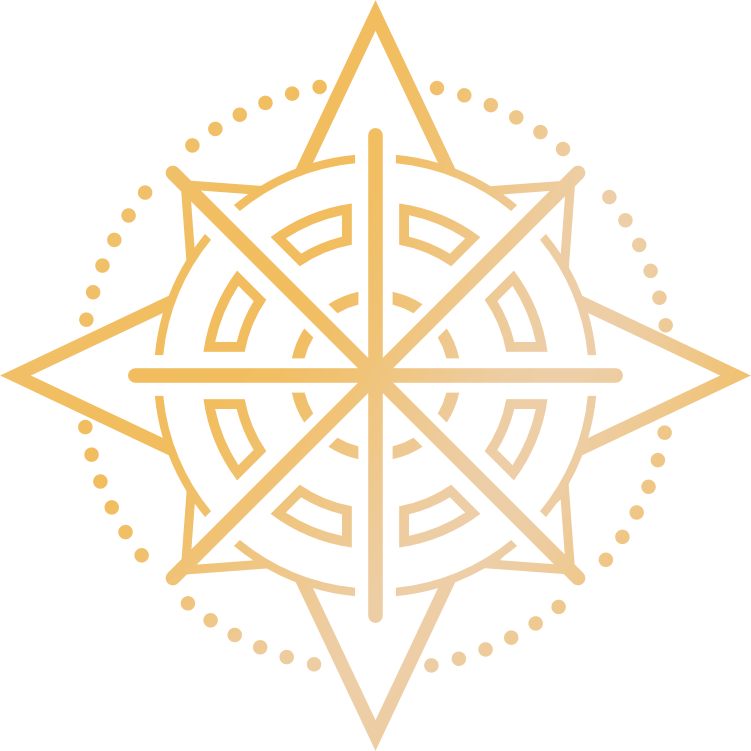Eight of Pentacles
The Eight of Pentacles is a card that often appears when you’re working hard to achieve something meaningful. It’s about dedication, learning, and the satisfaction that comes from purposeful effort. Imagine someone at their workbench, carefully crafting each detail—this is the spirit of the Eight of Pentacles. It’s less about the end goal, and more about the process and the growth that happens along the way.
Context of the Card: Focused Effort and Mastery
At its core, the Eight of Pentacles is a card of diligence. The image usually shows a person absorbed in their task, carving pentacles one by one. There’s a clear sense of concentration and commitment. This card appears when you are, or need to be, in a phase of learning or skill-building. It speaks to the value of practice and the joy of seeing yourself improve.
“The difference between ordinary and extraordinary is that little extra.”
What Does the Eight of Pentacles Really Mean?
In a reading, this card signals a period where effort and attention to detail are essential. It’s about showing up, trying again, and refining what you do. Whether it’s a project at work, a personal relationship, or an inner journey, the Eight of Pentacles encourages you to stay engaged, to find meaning in the process, and to honor your own growth.
Main Meanings: Upright and Reversed
Upright Eight of Pentacles
- Skill development: Actively learning, practicing, or training.
- Dedication: Sticking with something even when it’s not easy.
- Attention to detail: Taking pride in doing things well, not just quickly.
- Personal growth: Noticing how effort leads to improvement over time.
When upright, this card reflects a healthy relationship with work and learning. You’re not just going through the motions—you’re invested in what you do. There’s satisfaction in seeing progress, and a sense that your efforts are building toward something significant.
Reversed Eight of Pentacles
- Boredom or lack of focus: Feeling stuck in routine, disconnected from purpose.
- Cutting corners: Doing the minimum, or not caring about quality.
- Perfectionism: Getting lost in endless tweaking, never feeling good enough.
- Frustration with slow progress: Wanting quick results and feeling discouraged when growth takes time.
Reversed, the Eight of Pentacles can point to burnout, or to a sense that your efforts aren’t valued or noticed. It might ask you to reconnect with your “why,” or to adjust your approach so that your work feels meaningful again. Sometimes, it’s a nudge to step back and rest, or to be kinder to yourself if you’re caught in cycles of perfectionism.
Psychological Applications: Growth, Mindset, and Emotional Insight
How Can the Eight of Pentacles Help in Modern Life?
This card is a practical teacher for anyone wanting to develop themselves—at work, in relationships, or on a personal quest. The Eight of Pentacles reminds us that mastery is not instant. True progress is gradual, built day by day.
Psychologically, this card can be a gentle prompt to:
- Practice self-compassion when learning something new.
- Recognize and celebrate small wins along the way.
- Shift from a fixed mindset (“I can’t do this”) to a growth mindset (“I can get better with practice”).
- Notice if you’re falling into boredom, perfectionism, or frustration—and consider how you might re-engage or take a break.
“Progress, not perfection, is what matters most.”
Emotionally, this card invites you to reflect on your relationship with effort. Are you pushing too hard? Are you undervaluing your progress? Or are you avoiding meaningful work because of fear or fatigue? These are all important questions that the Eight of Pentacles brings up.
In Work and Career
The Eight of Pentacles is a sign that your commitment will pay off—if you stay engaged and open to learning. It’s also a reminder that everyone starts as a beginner. Comparing yourself to others, or expecting instant mastery, can be discouraging. Instead, focus on your own path, and trust that each step has value.
In Relationships
This card encourages you to invest in your connections. It’s not about grand gestures—it’s about showing up, listening, and learning what makes the other person feel seen and supported. Small, consistent efforts build trust and intimacy over time.
For Personal Growth
The Eight of Pentacles is a prompt to be patient with yourself. Growth is rarely linear. Ups and downs are part of the process. What matters is your willingness to keep trying, to learn from mistakes, and to honor each phase of your journey.
Concrete Steps and Self-Development Exercises
How to Work with the Energy of the Eight of Pentacles
- Set a learning goal: Choose one skill or habit you’d like to improve. Break it down into small, manageable steps. Track your progress, and celebrate each milestone.
- Practice mindful engagement: For one week, bring full attention to a daily task (like making coffee, writing, or listening to someone). Notice how focus changes your experience.
- Reflect on your “why”: Ask yourself why you want to improve or accomplish this task. Write down your reasons and revisit them when motivation dips.
- Notice and reframe perfectionism: If you catch yourself obsessing over getting it “just right,” pause. Remind yourself that growth is messy, and that mistakes are teachers.
- Schedule downtime: Balance effort with rest. Quality work comes from a nourished mind and body.
Journaling Prompts
- What is one area of my life where I’m willing to commit to steady progress?
- How do I react when things take time, or when I make mistakes?
- What helps me stay motivated when the process feels slow?
- How can I celebrate small wins today?
Try choosing one prompt above and write for ten minutes. Notice what insights or feelings come up.
Final Thoughts
The Eight of Pentacles reminds us that growth happens through consistent, mindful effort. It’s less about being perfect, and more about being present. When you focus on the process, you honor your own journey—and that’s where true change begins.
Tarot is not fortune-telling — it’s a mirror for reflection and growth.

